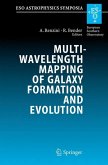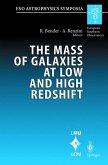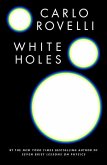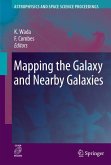This book is based in part on classroom tested lectures related to the first stars (Pop III stars), but also draws from the author's review articles of the main physical principles involved. The book will thus combine pedagogical introductory chapters with more advanced ones to survey the cutting-edge advances from the frontier of research.
The formation of Pop III stars and galaxies is one of the great outstanding challenges in modern astrophysics and cosmology. The first stars are likely key drivers for early cosmic evolution and will be at the center of attention over the next decade. The best available space and ground-based telescopes like the Hubble Space Telescope probe the Universe to high redshifts and provide us with tantalizing hints; but they cannot yet directly detect the first generation of stars and the formation of the first galaxies. This is left as key science for future telescopes like the James Webb Space Telescope.
The book covers the theoryof first star formation, the relation between first stars and dark matter, their impact on cosmology, their observational signatures, the transition to normal star formation as well as the assembly of the first galaxies. It will prepare advanced students and researchers entering the field for interpreting observational findings and their cosmological implications.
The formation of Pop III stars and galaxies is one of the great outstanding challenges in modern astrophysics and cosmology. The first stars are likely key drivers for early cosmic evolution and will be at the center of attention over the next decade. The best available space and ground-based telescopes like the Hubble Space Telescope probe the Universe to high redshifts and provide us with tantalizing hints; but they cannot yet directly detect the first generation of stars and the formation of the first galaxies. This is left as key science for future telescopes like the James Webb Space Telescope.
The book covers the theoryof first star formation, the relation between first stars and dark matter, their impact on cosmology, their observational signatures, the transition to normal star formation as well as the assembly of the first galaxies. It will prepare advanced students and researchers entering the field for interpreting observational findings and their cosmological implications.








